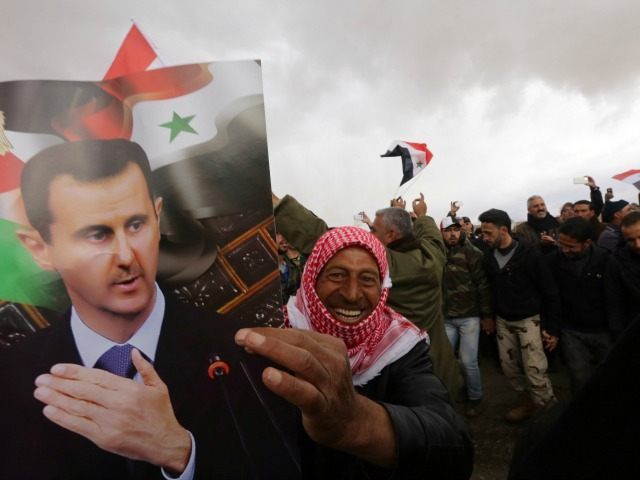In a hospital in northern Israel, wounded Syrian rebel Malek is waiting until he is well enough to pick up his gun again to battle President Bashar al-Assad’s regime.
“I will return to Syria and fight until Assad is gone,” the 22-year-old told AFP in a treatment room guarded by Israeli soldiers.
Five years into Syria’s civil war, Israel has seen benefits despite the chaos unfolding next door, and the treatment of wounded fighters is one sign of its quiet and limited involvement.
It has sought to avoid being dragged directly into the conflict, but at the same time defend what it sees as its interests.
Israel insists its policy of treating war wounded who seek help is driven by humanitarian concerns.
But analysts point out that rebels, including those linked to Al-Qaeda and the Islamic State (IS) jihadist group, are also fighting, and weakening, Hezbollah militants backing Assad.
– Officially at war –
Israel and Syria have formally been at war for decades though the demarcation line between them had been quiet for more than 30 years.
When the civil war began in 2011, Israel decided to minimise any active intervention, said Haim Tomer, a former senior officer of Israeli intelligence service Mossad.
But as Syria splintered, new threats and potential opportunities arose for Israel — sometimes leading to more direct involvement.
More than 2,000 Syrians have been treated in Israeli hospitals since 2013, according to the Israeli army.
Malek, who says he fights in a brigade in the Free Syrian Army in southern Syria, has received one operation for a stomach wound paid for by Israel and was waiting for another on his leg.
He said rebel commanders knew about the treatment and there was acceptance of it.
Another fighter, on his second trip to Israel, said that when he was wounded in a car bomb he chose Israel over Jordan for treatment because of its better healthcare.
The Ziv Hospital estimates each Syrian on average costs the Israeli government roughly $15,000.
The Israeli army refuses to confirm or deny rumours of IS and Al-Qaeda fighters among the injured, saying it treats people without asking their affiliation.
– Shifting threats –
The war means that Assad’s forces no longer have the capacity to seriously threaten Israel.
And Hezbollah, the Lebanese political party-cum-militia that Israeli officials routinely refer to as their largest danger, appears too preoccupied fighting alongside Assad to attack Israel.
“The threat from the state of Syria to Israel disappeared, and this is part of the good news,” said Itamar Yaar, a former deputy head of Israel’s National Security Council.
“We don’t see this will change in the coming months or few years,” he added, stressing Israel is happy to see Hezbollah battle it out with Islamists in clashes in which it has lost hundreds of fighters.
But the fractious nature of the war also creates potential threats, including what Israel sees as the growing influence of its arch-foe Iran in Syria.
In the province of Quneitra, within sight of the Israeli-occupied Golan Heights and where Malek was fighting, much of the territory is held by Al-Nusra Front, the Syrian affiliate of Al-Qaeda.
Further south are the Yarmouk Martyrs Brigade, which have been linked to IS.
Despite rhetoric against Israel, neither Al-Nusra nor IS has attacked Israeli territory.
But authorities have erected a 50-kilometre fence along the border to keep fighting at bay, and increased coordination with the Jordanian army.
Russia’s entry into the war last September in support of Assad added another layer of complexity.
Yaar said that while Russia and Israel have solid relations, Moscow’s involvement made Israel’s activities inside Syria harder because it forced the Jewish state to coordinate.
Israeli intelligence officials are now watching to what extent Russia follows through on its announced withdrawal of forces.
“I don’t think Israel will react very differently until we see changes on the ground,” Yaar said.




COMMENTS
Please let us know if you're having issues with commenting.